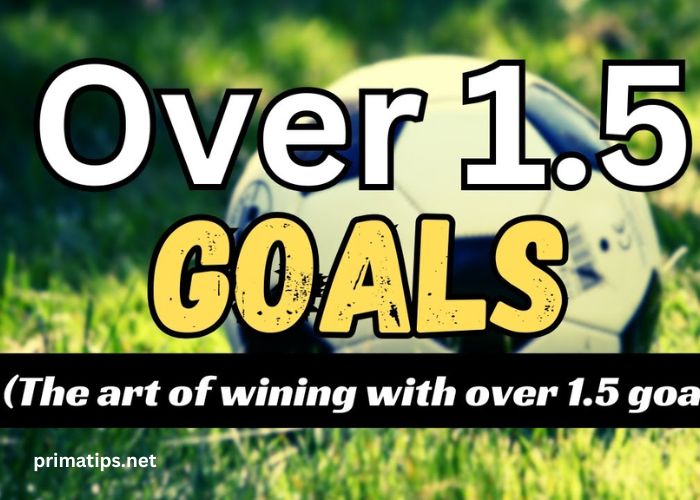Achieving a Balanced Lifestyle: Key Steps to Success
In today’s fast-paced world, achieving a balanced lifestyle has become more crucial than ever. We are constantly bombarded with demands from work, personal relationships, health, and societal expectations. Without a clear plan to balance these elements, many people find themselves overwhelmed, stressed, and ultimately dissatisfied. However, by taking strategic steps towards achieving balance, individuals can lead more fulfilling, healthy, and productive lives. In this article, we will explore key steps to achieving a balanced lifestyle, including self-awareness, goal-setting, time management, and nurturing personal health.
Understanding the Concept of a Balanced Lifestyle
What is a Balanced Lifestyle?
A balanced lifestyle refers to a state of well-being where different areas of life—such as work, family, health, relationships, and personal growth—are harmoniously integrated. It involves finding equilibrium among personal, professional, and social responsibilities, as well as taking time to care for your physical, mental, and emotional health.
Balance doesn’t mean dividing time equally among all areas of life but prioritizing what’s most important at any given moment. It’s about making conscious decisions and creating boundaries that support your long-term happiness and success.
Why is a Balanced Lifestyle Important?
Living a balanced lifestyle is important for several reasons:
-
Improved Health: A balanced approach to life can help reduce stress, improve mental health, and support physical well-being.
-
Enhanced Productivity: When you manage your time and energy well, you can become more productive and efficient in your personal and professional life.
-
Better Relationships: By making time for family and friends, you strengthen the bonds that nurture your emotional well-being.
-
Increased Happiness: When life is in balance, you feel more content, satisfied, and at peace with yourself.
Key Steps to Achieving a Balanced Lifestyle
Step 1: Self-Awareness – Understand What Truly Matters
The Importance of Self-Reflection
The first step in achieving balance is understanding yourself. Self-awareness is key to recognizing your needs, desires, strengths, and limitations. Take time to reflect on what truly matters to you and where you want to focus your energy. Are you spending enough time on your health, relationships, or personal growth? Are there areas where you feel unfulfilled or drained?
Self-awareness can help you recognize any imbalances in your life and make conscious choices to correct them. This could involve spending more time on self-care, pursuing hobbies, or reassessing your career priorities.
How to Cultivate Self-Awareness
To enhance your self-awareness, consider these activities:
-
Journaling: Writing down your thoughts and feelings can help you gain clarity about your emotions and goals.
-
Mindfulness Meditation: Practicing mindfulness helps you become more present and aware of your thoughts and actions.
-
Seeking Feedback: Ask trusted friends, family, or colleagues for their perspective on your habits and behaviors.
Step 2: Setting Clear Goals – Create a Roadmap to Balance
Defining Personal and Professional Goals
Once you have gained insight into your priorities, the next step is setting clear goals. Your goals should reflect what you value most in life. These goals will act as a roadmap, guiding you toward balance.
When setting goals, be sure they are SMART (Specific, Measurable, Achievable, Relevant, and Time-bound). A well-defined goal makes it easier to allocate your time and energy effectively.
For instance, instead of a vague goal like “get healthier,” set a specific target such as “exercise for 30 minutes, 4 days a week” or “meal prep every Sunday.”
Balancing Multiple Goals
When pursuing multiple goals, it’s crucial to ensure that one area doesn’t overwhelm the others. Use a tool like a priority matrix to determine which goals are most important and urgent. Some goals, like health and family, should be non-negotiable, while work goals may be flexible depending on your workload.
Step 3: Effective Time Management – Prioritize and Organize
Mastering Time Management Techniques
Time management plays a significant role in achieving a balanced lifestyle. Without effective time management, it’s easy to get caught up in the demands of daily life, leaving little room for rest or personal activities.
A few time management strategies that can help you achieve balance include:
-
The Eisenhower Matrix: This method involves categorizing tasks into four quadrants based on urgency and importance. Focus on what matters most and avoid spending time on low-priority activities.
-
Time Blocking: Schedule specific blocks of time for different activities, including work, exercise, and personal time. This can help you stay organized and ensure you’re giving time to all aspects of your life.
-
The Pomodoro Technique: This involves working in intervals, typically 25 minutes of focused work followed by a 5-minute break. This method helps prevent burnout and increases productivity.
Avoiding Time Wasters
To improve your time management, identify activities or habits that waste time without offering significant benefits. For example, mindlessly scrolling through social media or overcommitting to social events can eat into time that could be better spent on your health or relationships.
Step 4: Nurturing Physical Health – The Foundation of Balance
The Role of Exercise and Nutrition
Physical health is an essential component of a balanced lifestyle. When your body is strong and healthy, you have more energy to tackle the challenges of life.
-
Exercise: Regular physical activity is vital for maintaining energy, reducing stress, and preventing chronic illnesses. Aim to incorporate both cardio and strength training exercises into your weekly routine.
-
Nutrition: A balanced diet is key to supporting both physical and mental well-being. Eat a variety of nutrient-dense foods, such as vegetables, fruits, whole grains, and lean proteins. Hydration is also crucial, so drink plenty of water throughout the day.
The Importance of Sleep and Rest
Never underestimate the power of sleep and rest. Adequate sleep (7-9 hours per night) is essential for recovery, focus, and overall health. Without sufficient rest, both your physical and mental capabilities are compromised, making it harder to maintain a balanced lifestyle.
Step 5: Mental and Emotional Health – Find Balance Within
Managing Stress and Emotions
Mental and emotional well-being is just as important as physical health. Stress is an inevitable part of life, but how you manage it can make all the difference in maintaining balance.
-
Stress Management: Regular relaxation techniques, such as deep breathing, yoga, or meditation, can help manage stress. Practicing mindfulness also encourages a calm, focused mindset.
-
Emotional Awareness: Take time to understand and process your emotions. This can prevent emotional burnout and help you respond to life’s challenges with resilience.
Seeking Professional Help
If you find it challenging to manage stress, anxiety, or emotional issues on your own, seeking help from a therapist or counselor can provide valuable support. Mental health professionals can guide you through effective coping mechanisms and help you address deeper emotional concerns.
Step 6: Cultivating Healthy Relationships – Connecting with Others
Building a Strong Support System
One of the pillars of a balanced lifestyle is the relationships you cultivate with others. A strong support system is crucial for emotional well-being, and surrounding yourself with positive, supportive people can enhance your overall life satisfaction.
Make time to nurture meaningful relationships, whether with family, friends, or romantic partners. These connections offer emotional support, create a sense of belonging, and provide opportunities for personal growth.
Setting Boundaries in Relationships
While building relationships is important, it’s also necessary to set boundaries. Boundaries protect your time and energy, allowing you to give your best to others without feeling drained. Whether at work or in personal life, being clear about your limits ensures you maintain balance.
Step 7: Prioritizing Personal Growth – Develop Yourself Continuously
The Importance of Lifelong Learning
Personal growth is a lifelong journey. Continuously learning and evolving enhances your sense of purpose and fulfillment. Whether through reading, taking courses, or engaging in creative activities, personal development helps you grow as an individual.
Make time for hobbies and interests that spark your curiosity. These activities not only add variety to your life but also provide a sense of accomplishment and joy.
Practice Gratitude
Gratitude is a powerful tool for achieving balance. Practicing gratitude helps you focus on the positive aspects of life, promoting contentment and reducing the impact of stress. Try keeping a gratitude journal and write down three things you’re thankful for each day.
Conclusion: Strive for Balance, Not Perfection
Achieving a balanced lifestyle is not about perfection. It’s about making conscious choices that align with your values and priorities. By incorporating self-awareness, clear goal-setting, effective time management, physical and mental health care, nurturing relationships, and continuous personal growth, you can create a life that feels fulfilling and balanced.
Remember, life is dynamic, and balance will look different at different stages. Strive to stay adaptable, reevaluate your priorities as needed, and make time for what truly matters. By taking these steps and focusing on the areas that need attention, you can lead a more purposeful and balanced life.













